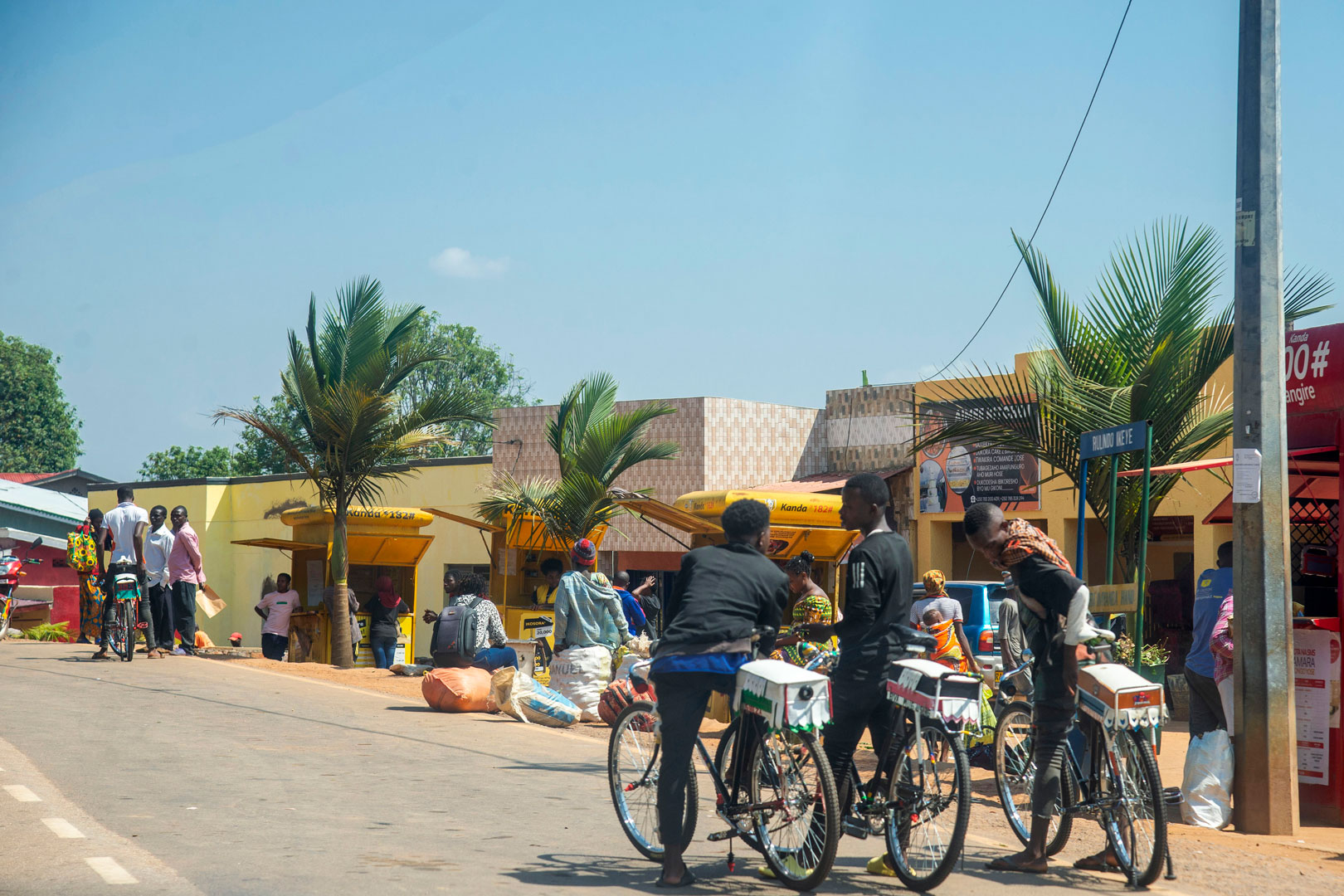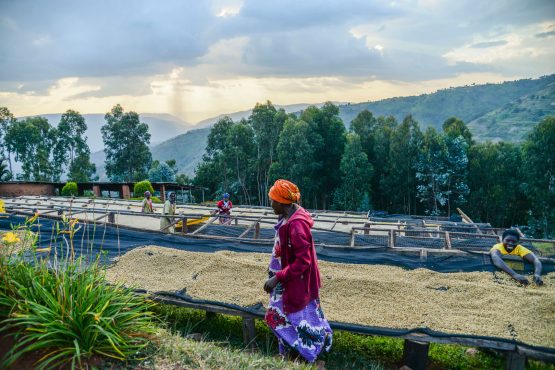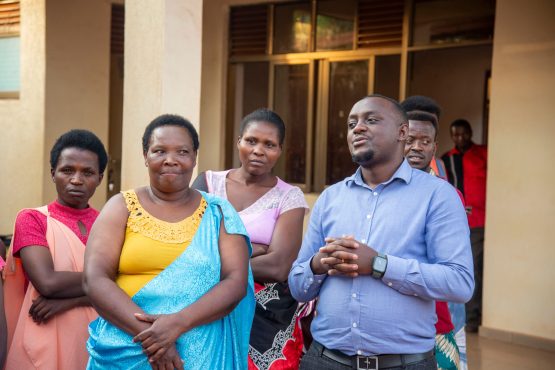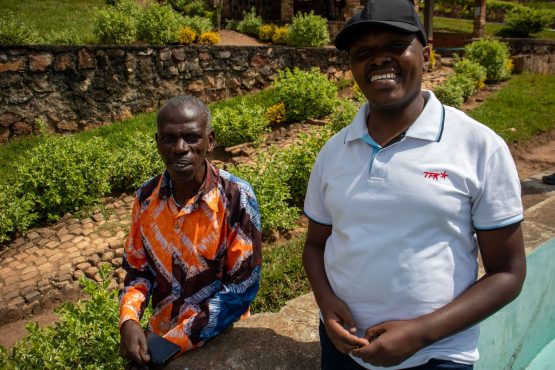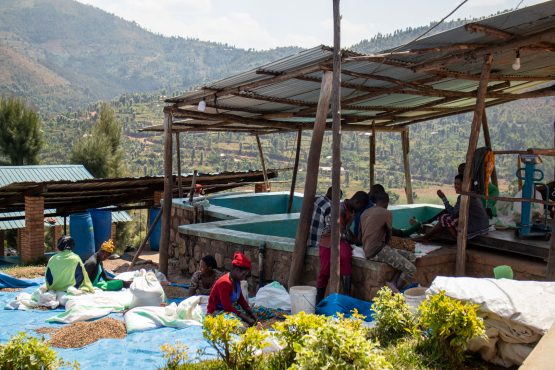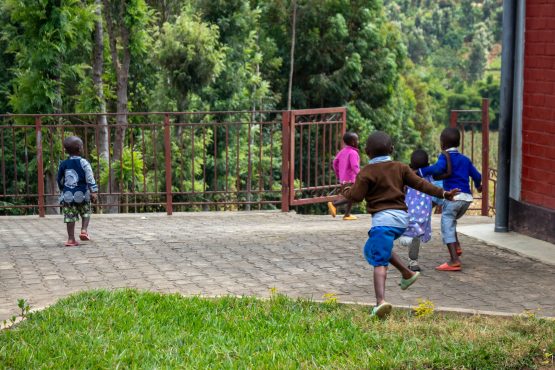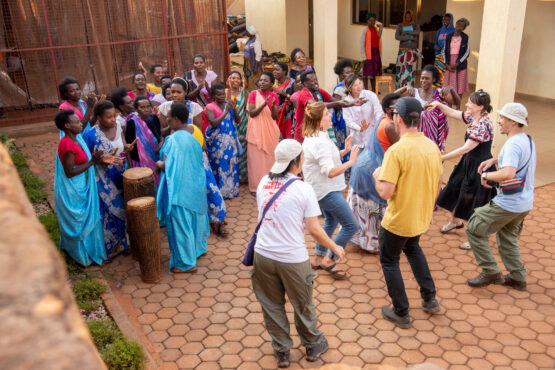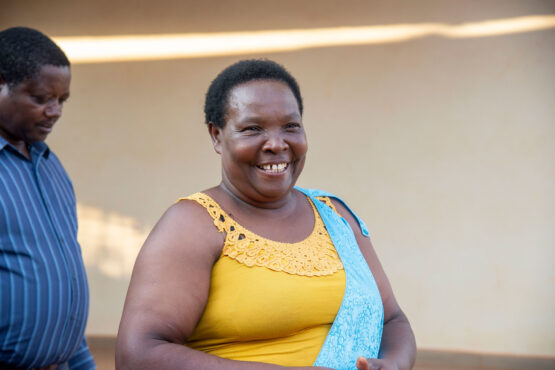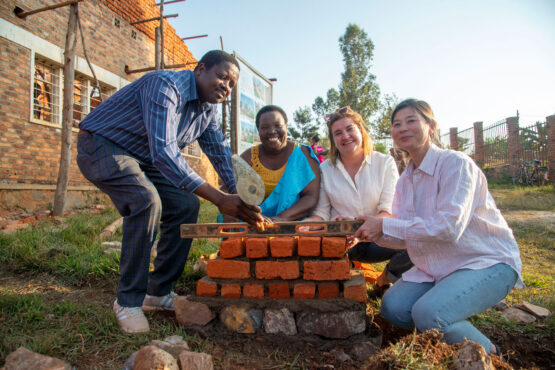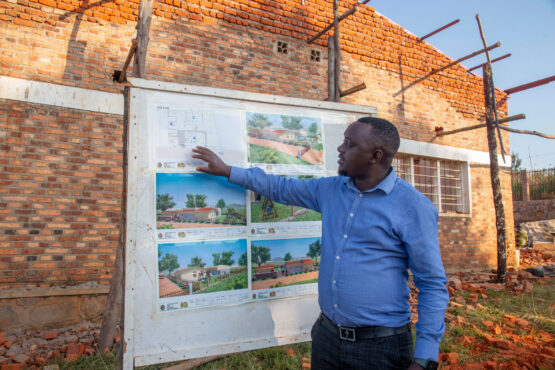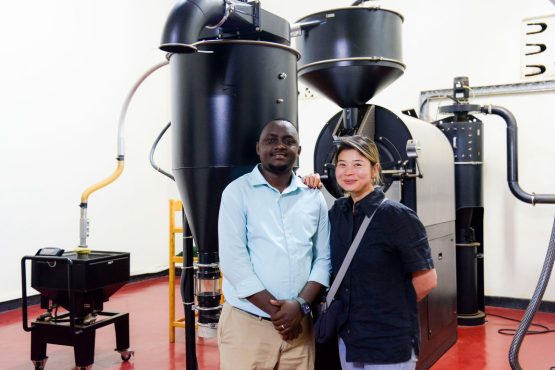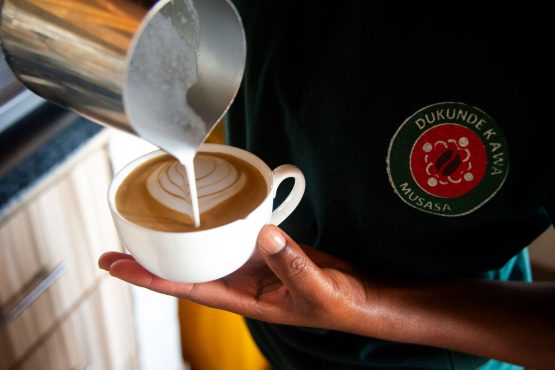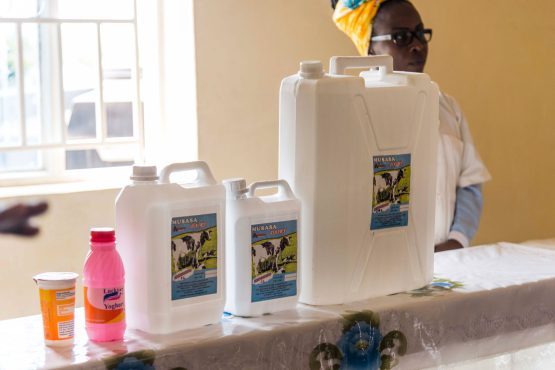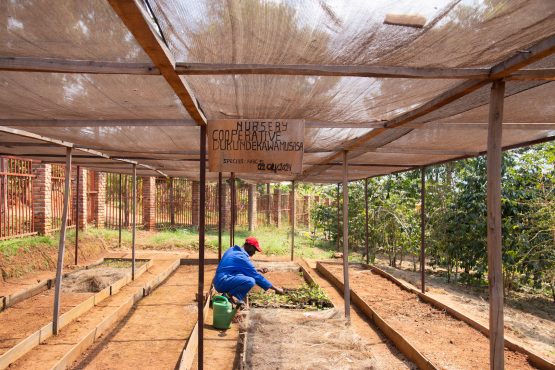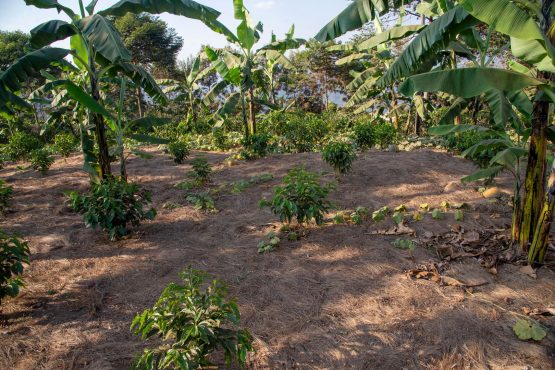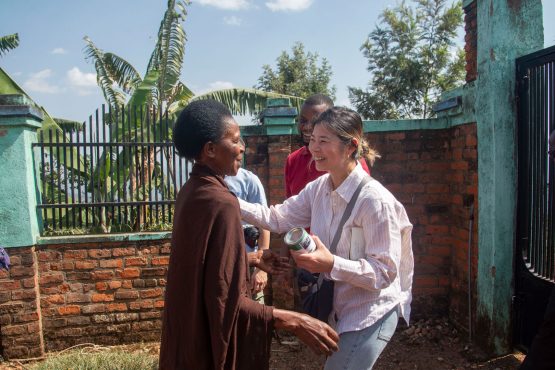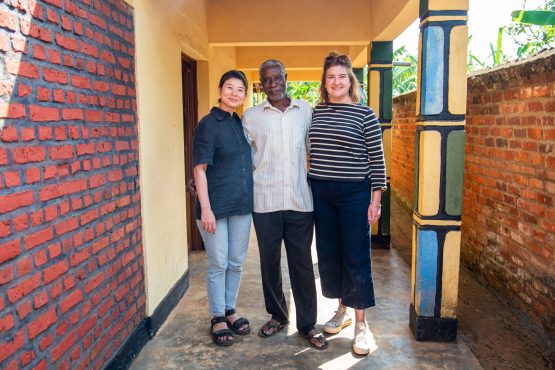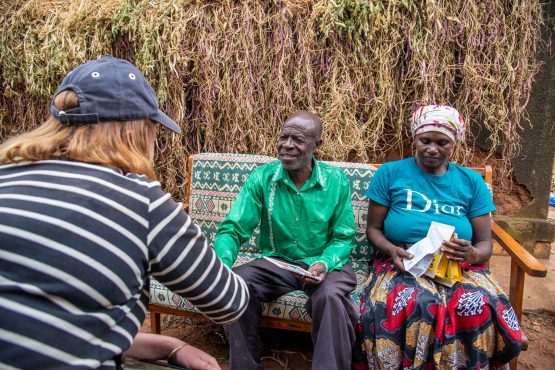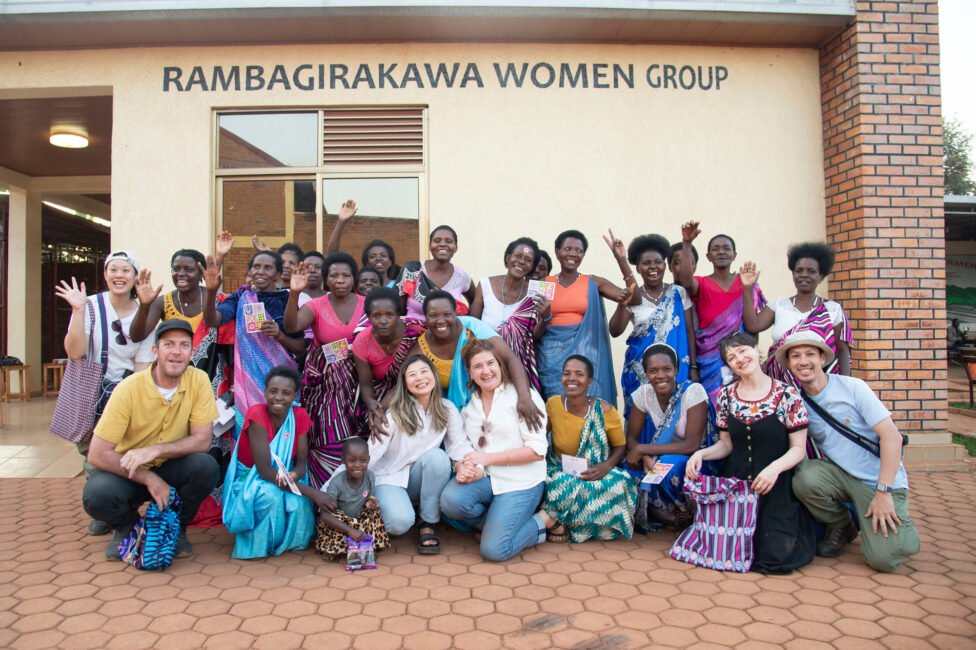Updates From The Road: Rwanda 2024
We’ve been sourcing coffees from Rwanda since 2008, and the relationships we’ve developed there are strong and deeply meaningful. Spending time with our friends at Buf Coffee and the Dukunde Kawa and Maraba cooperatives is something we look forward to during every annual sourcing trip, and especially so this year, when we celebrated the culmination of the Supporting Strong Women campaign. Here, we share insights and updates from the trip, including an overview of the 2024 season and what to expect for our incoming line up!
Published 27 Aug 2024
Although unseasonable rains early in the year delayed the start of the 2024 harvest by a few weeks, weather conditions across the growing season were generally favourable, with most regions experiencing an increase in yields and cherry quality — good news for cooperatives and exporters after last year’s challenging weather conditions and lower production.
A major change this season was the recent repeal of Rwanda’s controversial zoning laws, which first came into effect in 2017. These regulations established regional coffee-producing ‘zones’ and dictated that coffee producers could only sell cherry to washing stations within their designated zone — the goal being to stabilise farmgate pricing by controlling (sometimes intense) competition for cherry and incentivise closer relationships between washing station operators and local producers. While the laws were designed to protect small cooperatives and Rwandan-owned exporting companies (particularly as more international parties set up operations there), in practice they limited the autonomy of farmers to sell where the price is highest, and required cooperatives and exporters to purchase cherry that didn’t always meet their quality standards.
With zoning limitations ending in June 2023, the most recent harvest was the first one producers completed without governmental restrictions in seven years. While this change allowed our supply partners to access higher quality fruit, the National Agricultural Export Development Board’s decision to increase the base price of coffee cherry by almost 20% quickly overheated the market and farmgate prices soared.
Sudden increases in coffee prices favour the farmer in the short-term, but almost always create insecurities in the market’s medium and long-term, as independent or small exporters are not able to keep up with rising cost of securing cherry. In theory, higher pricing and the repeal of the zoning policies should benefit farmers in making a good income from their crop, however, it remains to be seen how the new free market model will play out in the long-term.
When Rwanda’s modern coffee industry was established in the early 2000s, the effects of the horrific 1994 genocide were still very present and the country’s economy was actively recovering. The establishment of coffee washing stations and processing sites by cooperatives and exporters around the country provided the nation’s rural population better access to resources like running water and electricity. From their inception, organisations like Dukunde Kawa, Maraba and Buf have worked with village leaders and local authorities to bring greater opportunity and prosperity to their communities: by building infrastructure, providing employment, sharing resources and training for farmers and offering fair and favourable prices for coffee cherry. The resulting trust and esteem of our supply partners has made it easier for them to secure great quality cherry from committed producers, helping them navigate a complex trading landscape expertly.
We witnessed this firsthand touring Buf’s washing stations with our dear friend Sam Muhiwra, whose exporting business has been key in the much-needed development of Rwanda’s historically poorer Southern Province. At every site, Sam was greeted warmly by farmers and washing station workers who have worked with his family for many years, and often benefited directly from Buf’s various social programs. After a couple of challenging years following the pandemic, Sam hopes this season’s high quality will set Buf on a path to greater profitability and contribute to the further progress of their farming communities.
At the nearby Maraba Cooperative, Production Manager Jean Batiste gave us a tour of their Sovu and Cyarumbo washing stations. Like Buf, the cooperative has navigated this year’s season by offering competitive premiums to their farmer. Jean explained that when larger, internationally owned and financed exporters enter the market, smaller cooperatives must offer similar premiums to secure cherry. Maraba incentivises their farmer members by offering additional bonuses, of two and even three payments, depending on the separation and quality of the lot.
Our time on the field culminated with a visit to the Northern Province, where members of the Dukunde Kawa Cooperative and Rambagirakawa women’s alliance awaited us. After raising funds for the construction of a daycare centre in at the co-op’s Ruli site with the support of Australia’s coffee community, we were beyond excited to arrive and celebrate the success of the Supporting Strong Women campaign. Speeches were made, tears were shed, and a ceremonial foundation stone was laid by Beau and Aislinn. It was an extremely special day, that will stand out as one of the most memorable in MCM’s collective history.
This year, Dukunde Kawa’s Managing Director Ernest Nshimyimana was excited to show us plans for upgrading their dairy facilities and the fully operational café they run at their Ruli HQ. The always enterprising co-op has expanded into eco-tourism, to generate extra revenue that benefits their contributing community at large. By running these programs, the cooperative offers its members opportunities for income outside of coffee production, resulting in an engaged and motivated membership. Throughout the year, Dukunde Kawa also provides farmers with resources, tools and agronomical support, including micro-financing and long-term saving schemes, and has set up a coffee school for local youth interested in picking up coffee growing. The co-op’s payment structure is extremely transparent, with a guarantee that 50% of their profits will always go back to farmers. It’s no surprise, then, that when zoning laws lifted, many members who live outside permitted regions swiftly returned to deliver cherry to Dukunde Kawa’s washing stations.
With both Aislinn and Beau on the trip, the cupping and selection of this year’s lots was quick and efficient and we’re super excited about the line up! We’ve secured distinct and vibrant day lots from some of our favourite washing stations in both the Southern and Northern Provinces, along with a handful of peaberry, women’s group or farmer group lots, which will sail over two shipments due to land in December. Pre-shipment samples will be available in limited numbers in late September — if you’re keen to taste, get in touch now and let us know about your purchasing intentions for the year!
